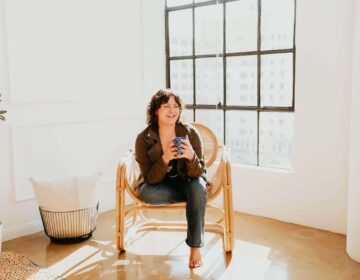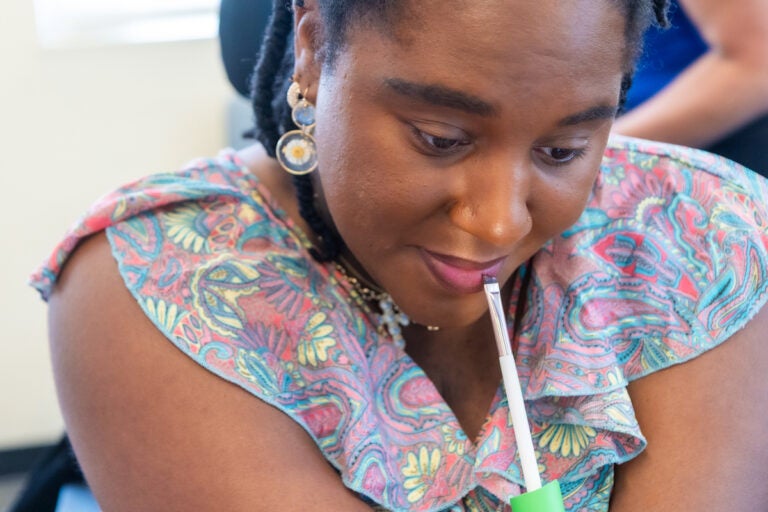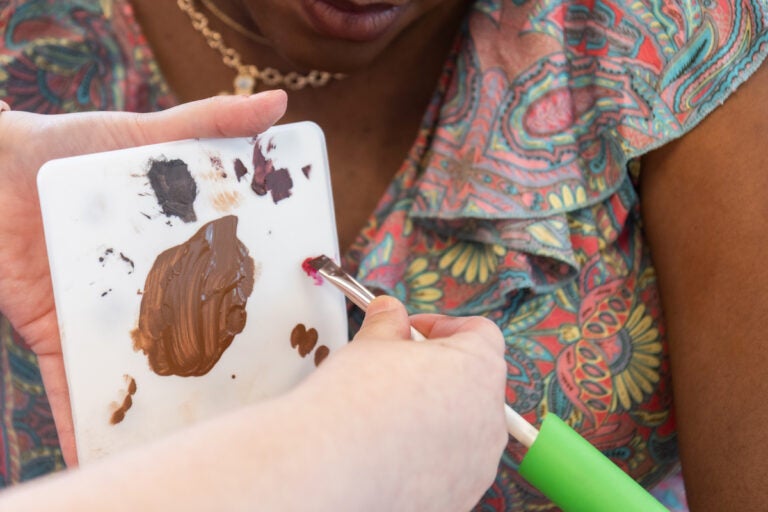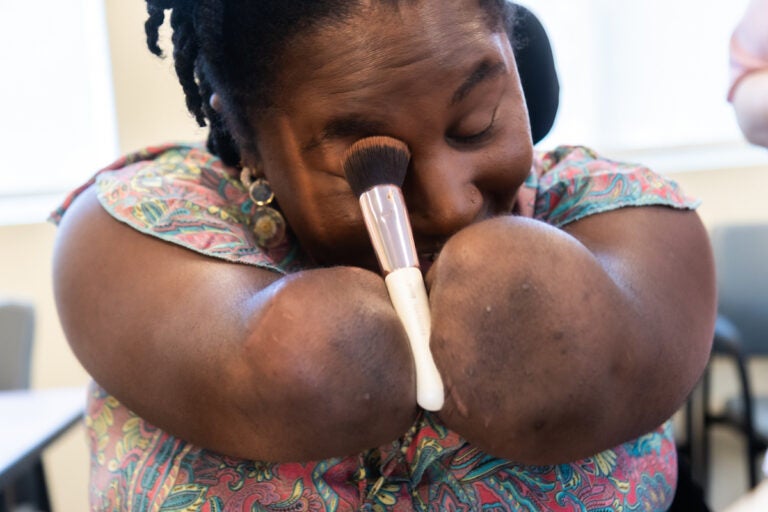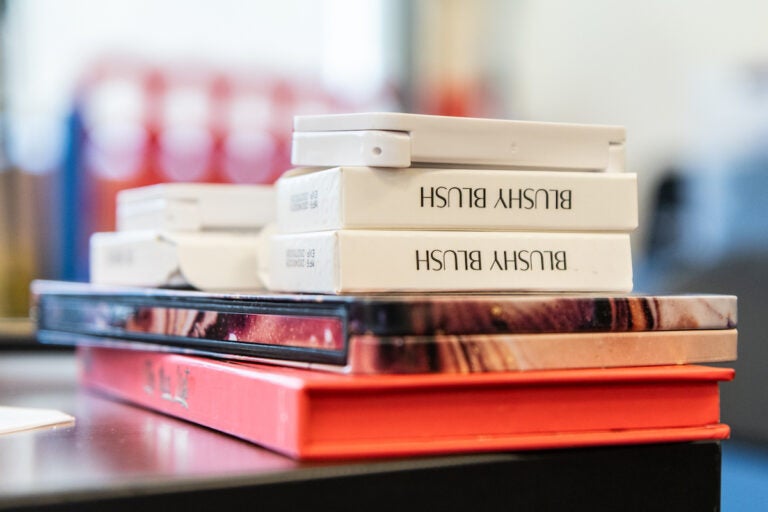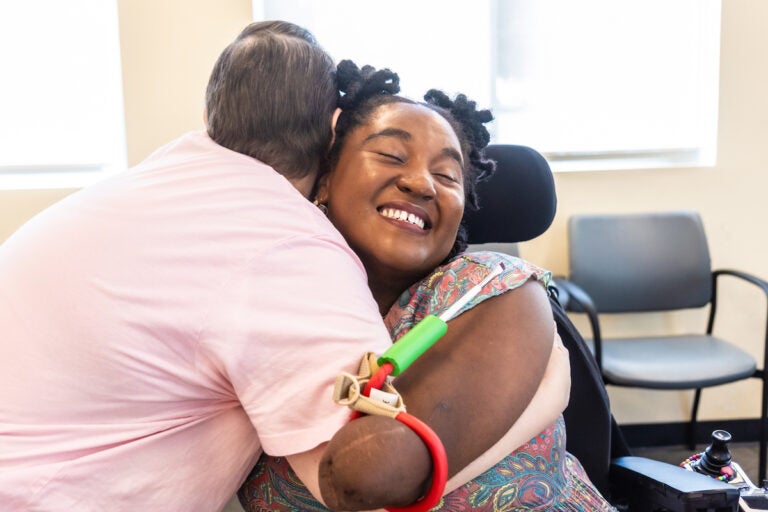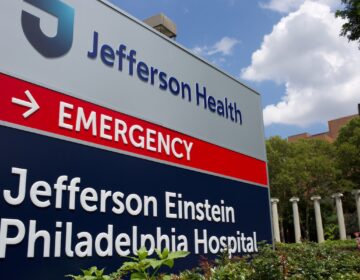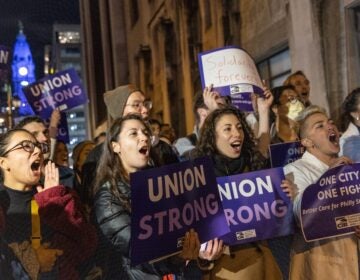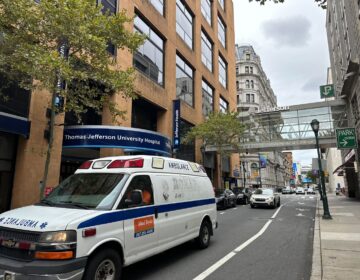Putting their best faces forward: Skin care and makeup help Philadelphia patients after medical trauma
A new therapy support group at Jefferson Moss-Magee Rehabilitation helps patients regain independence and identity with makeup and skin care classes.
From Philly and the Pa. suburbs to South Jersey and Delaware, what would you like WHYY News to cover? Let us know!
Upbeat power ballads from Christina Aguilera, Lizzo and Diana Ross flowed throughout a small room inside Jefferson Moss-Magee Rehabilitation’s Riverfront location in South Philadelphia.
Several women sat around small vanity mirrors, some of them in wheelchairs. On the table before them was an array of makeup brushes, lip liners, eye shadows, face cleansers and other beauty tools and products.
“You said you wanted to do your eyebrows, right?” Rebecca Carpino asked Candice Davis, who nodded yes.
Both women are patients at the rehabilitation center and participants in a new kind of group therapy. The support program focuses on mental health recovery after medical trauma by using makeup and skin care to help reclaim confidence and independence.
On a recent Thursday morning, the two patients were helping each other.
Carpino added a dollop of brownish-black eyebrow pomade onto a clean palette and set it down before Davis, who then dipped an angled brush into the mixture and brought it to her left brow.
“Am I getting it?” Davis asked Carpino as she leaned in closer to the mirror.
“You’re getting it, just go a little higher,” Carpino guided her.
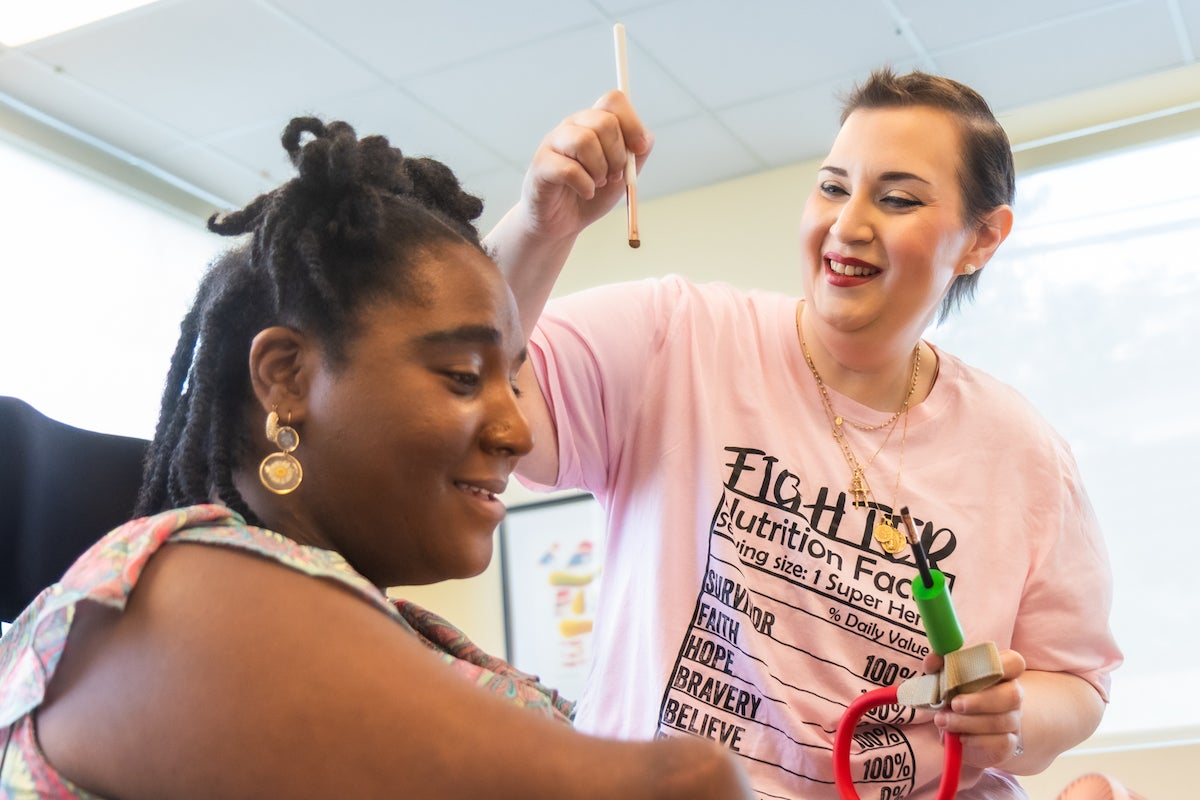
For Davis, joining the group was an opportunity to learn how to use her body in new ways after becoming severely sick with COVID-19 in 2021.
At just 30 years old, her illness left her in a medically induced coma and eventually led to the amputation of both her hands and lower arms, as well as parts of her legs.
While rehabilitation can often focus heavily on the physical aspects of healing, patients like Carpino said the mental health piece is just as important.
“We’re told, ‘Go to your appointments, go to therapy, you need sleep, you need rest,’ but how often do we get to take care of ourselves?” said Carpino, who is recovering from her third bout of cancer and helped launch the makeup group. “That’s what really empowers me to really make this something into a healing process.”
Focusing on the mind-body connection of therapy
The new support group combines makeup application and skin care with music therapy. At the same time, patients are still engaging in physical and occupational therapy by exercising certain motor skills and movements.
At a recent support group meeting, Carpino wore red lipstick, glittery pale pink eyeshadow and a heavy winged eyeliner.
“I was going for a pinup-girl look today,” she said with a big smile.
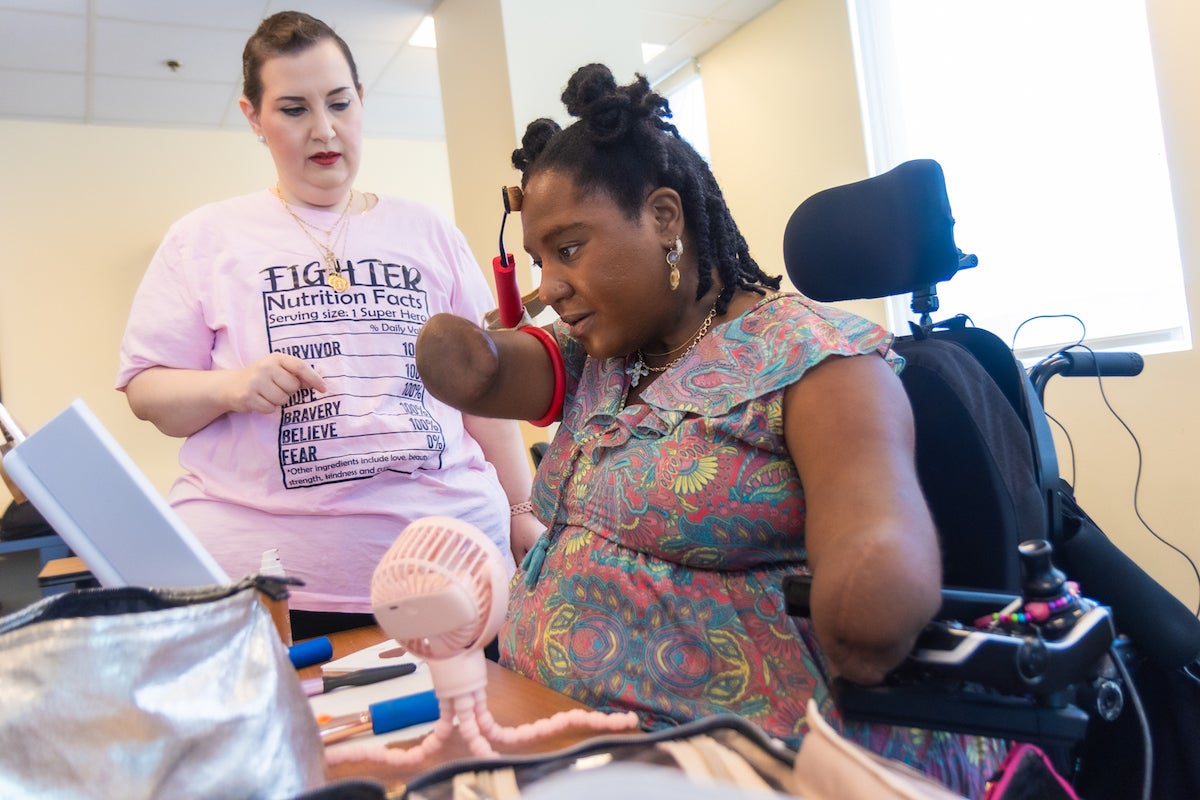
Learning more about skin care and practicing makeup techniques have become ways for Carpino to relax and build self-esteem, especially in the wake of cancer treatments that required multiple surgeries and have left her with health complications.
Most recently, she survived a recurrence of Ewing sarcoma, an aggressive type of cancer that affects the bones and soft tissues. Surgery in her spine in 2023 caused temporary paralysis and she needed rehabilitation therapy.
“I had to learn to do everything again,” said Carpino, who worked at Jefferson Moss-Magee Rehabilitation as a social worker for 12 years before her last diagnosis.
She quickly teamed up with music therapist Lucy Watts Stidfole to create the new support group. Stidfole said the idea already fit with therapy’s biopsychosocial and emotional framework — or the mind and body connection.
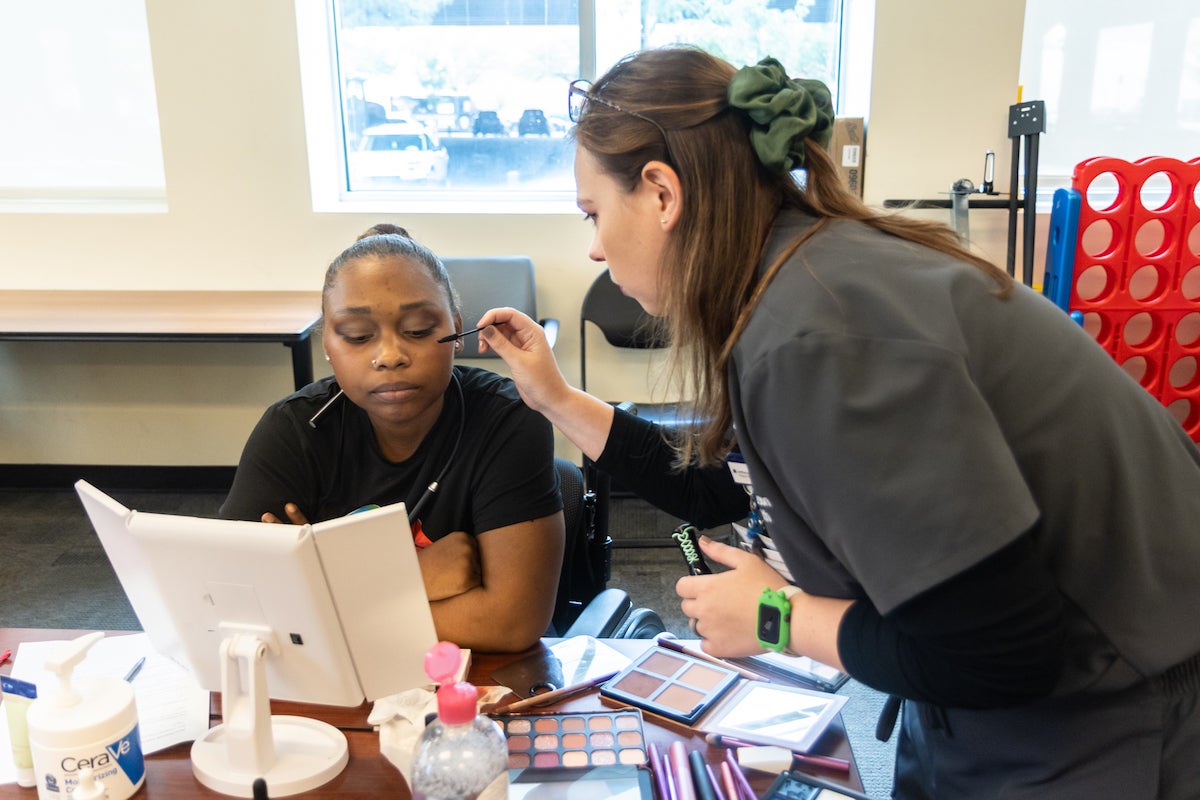
“If we’re treating people to support their mental health needs, their physical needs may benefit from that connection as well,” Stidfole said.
Support group participants request specific songs or generate playlists to set the mood for each therapy session. Other times, Stidfole will play nature sounds designed to reduce stress and create a calming environment.
Recovering from severe COVID-19 and finding a new identity
There are clear benefits to the program, said Davis, who worked out of Philadelphia International Airport as a flight attendant before her illness and amputations.
During the makeup therapy session, she used a jerry-rigged adaptive device constructed out of some Velcro and wired foam tubing. It strapped around her upper arm and could hold a brush in place that helped her reach different parts of her face.
Learning how to do her own makeup again is helping her form a new identity, she said.
“It was something I liked to do before, so it’s like, ok, now I’m doing it again,” Davis said. “And maybe even more empowering, because doing it in spite of your differences now, you know.”
At the end of each session, participants said they get to leave rehab with a boost of confidence and a new outlook on what they’re capable of.

Get daily updates from WHYY News!
WHYY is your source for fact-based, in-depth journalism and information. As a nonprofit organization, we rely on financial support from readers like you. Please give today.


